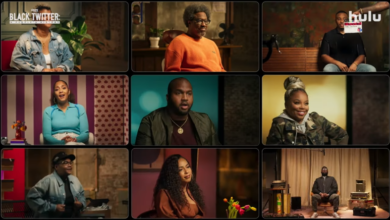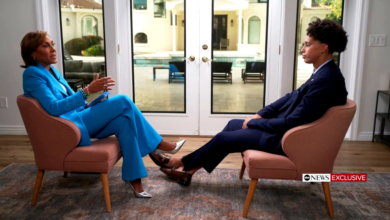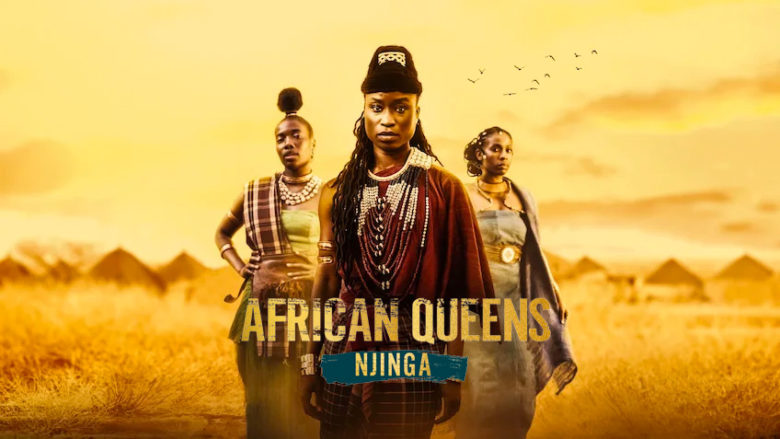
On this first day of Back History Month, UB spotlights the upcoming Netflix documentary series “African Queens: Njinga,” premiering February 15th.
From executive producer Jada Pinkett Smith this new documentary series explores the lives of prominent and iconic African Queens. The first season covers the life of Njinga, the complex, captivating, and fearless 17th century warrior queen of Ndongo and Matamba, in modern day Angola.
The nation’s first female ruler, Njinga earned a reputation for her blend of political and diplomatic skill with military prowess and she became an icon of resistance.
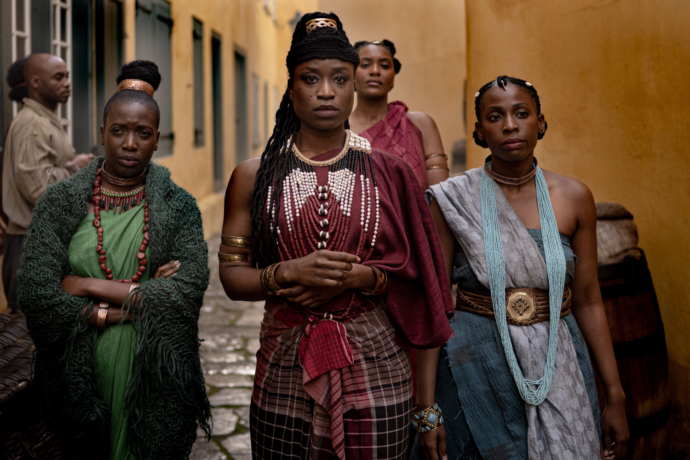
The documentary features four episodes, narrated by Jada Pinkett Smith.
In Episode One, Princess Njinga lives in Kabasa with her brothers and two sisters. The favorite of her father the king, she trains with her father’s warriors and learns the art of diplomacy at her father’s knee.
In Episode Two, Njinga convinces Imbangala leader Kasa to form a formidable and successful alliance against the Portuguese, ruthlessly and efficiently dispatching Portuguese forces and taking control of controlling slave routes.
Episode Three finds Njinga as the undisputed queen of Ndongo, but her murderous act has seen Kasa turn his back on her. She embarks on a successful campaign to encourage hundreds of enslaved people held by the Portuguese to defect to her camp. Incensed by this latest strategy the Portuguese wage all-out war and Njinga goes on the run with her army.
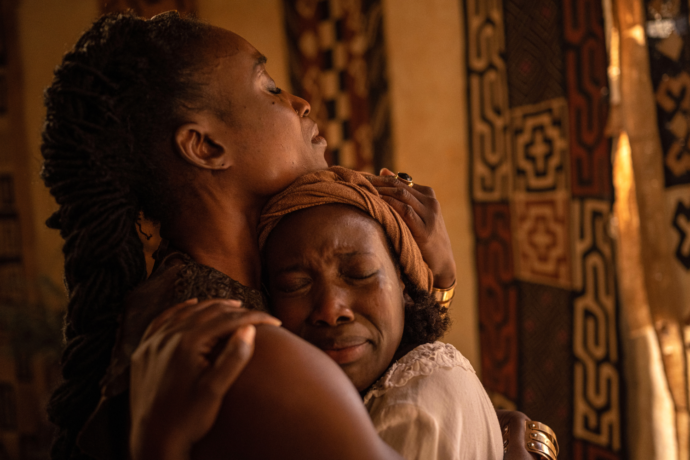
In the final episode, Queen Njinga is at the height of her powers but without her sisters, it means nothing. The Portuguese are out of ideas on how to deal with her. The King of Portugal himself demands action against her. They try a carrot approach returning her sister Kambu, but keep Funji captive in the military fort Massangano where she operates in secret as a spy for Njinga.
Ndongo would eventually be taken over by the Portuguese to become Angola. However, the Kingdom of Matamba remained independent and went on to have four more female rulers after Njinga and her sister Kambu.
In 1975, over 300 hundred years after Njinga’s death, Angola finally won independence from the Portuguese. Some 6 million enslaved Africans were shipped away from Angola alone during the slave trade.
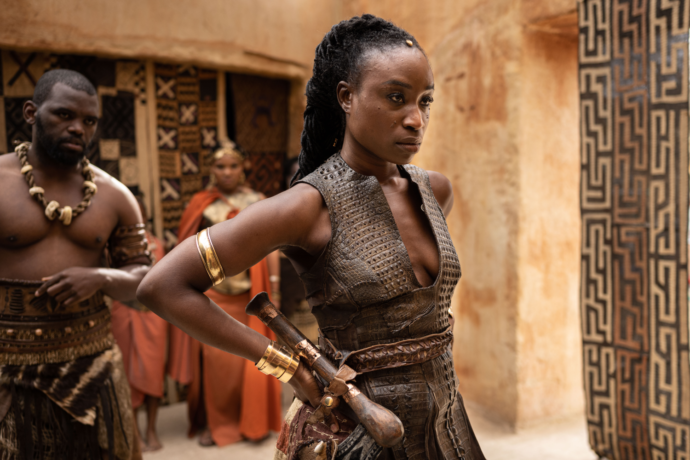
Jada Pinkett Smith Talks “African Queens: Njinga!”
What was the original inspiration for African Queens?
This particular project went through many different machinations, but it started with Willow. Raising a daughter like Willow, at first, we thought, “Let’s go to Africa and study the queens of Africa together as mother and daughter.” Because that terminology queen is tossed around a lot but what does it take to actually be a queen? So that’s where it really got inspired.How did you go about picking the queens?
I really wanted to represent Black women. We don’t often get to see or hear stories about Black queens, and that was really important for me, as well as for my daughter, and just for my community to be able to know those stories because there are tons of them! The sad part is that we don’t have ready access to these historical women who were so powerful and were the backbones of African nations. I was definitely interested in particular people, Njinga being one of them. A lot of people probably don’t know this about me, but I’m a historian in my own right and Njinga came up in my reading. I just found her fascinating. She was a powerhouse. It was important to me that their stories were told well and Nutopia is one of the best partners because they do this so well. They’re going to research whatever name or idea is given to them to the hilt. I was really happy that they were passionate about this project as well. They just know how to do the deep dive.What did you love about Njinga in particular?
To be a queen is a complicated position. To be a woman in patriarchal culture is also complicated, but the thing that I loved about her was her perseverance, and how much she loved her sisters, and how she would not give up on protecting her family and was willing to do whatever it took to protect her own people and her Kingdom from the ravages of the transatlantic trade. She understood that it would always mean making hard and difficult choices, but she was a leader who ruled in complicated times, and I think we have to understand her in the context of those times.In 2023, it hits different to ask actors to play and viewers to watch depictions of slavery, when we are attuned to the trauma of this history for the Black community. How do you negotiate that line?
It’s definitely a delicate walk, but I also think that it’s important to acknowledge history and slavery is an aspect of our history. It is a very delicate walk, but I don’t think that it’s a walk that we can overlookWhat are some of the conversations that you hope we have coming out of this?
I’m hoping that it can pierce some of the stereotypes, I really do. I feel like there are stereotypes on both sides, about what Black Americans are and stereotypes about what Black Africans are. I want people to take pride in the essence of what we are all together and what we have done to overcome the challenges that we’ve faced. I’m hoping that it’ll be a bridge and honor and provide more understanding around the seeds from which we’ve been birthed.
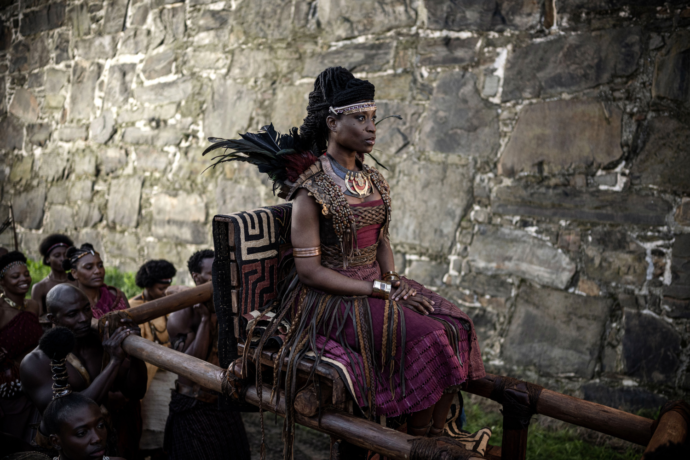
Executive Producers for “African Queens: Njinga” are Jada Pinkett Smith, Miguel Melendez, Terence Carter and Sahara Bushue for Westbrook Studios; Jane Root, Maxine Watson and Ben Goold for Nutopia, with Writers Peres Owino and NneNne Iwuji.
Check Out A Preview!

